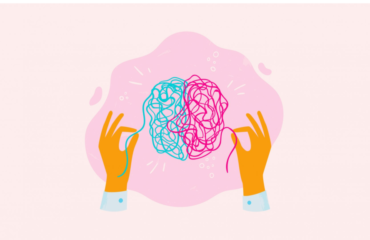The Human Brain is as Diverse as the Human Fingerprint
– Victoria McGovern

What comes to your mind when you read the word “Neurodiversity”?
Think of Biodiversity, Racial diversity, Cultural diversity, Sexual/Gender diversity. I am sure you are able to associate specific images or scenarios in your head. Similarly the word Neurodiversity, simply broken down means Neuro: which is the nervous system or the brain and Diversity: which means being different.
So who coined the term “Neurodiversity”?
This term was coined by the Australian sociologist, Judy Singer in the late 1990s. Singer, who was on the spectrum herself refrained from agreeing to the idea that people with autism were disabled. Instead, she believed that their brains just functioned differently from others. Thus, the term “Neurodiversity” was quickly picked up by activists, medical community and advocates and is now being used actively to promote inclusion in the corporate and education sphere.
What is the real “core” meaning of Neurodiversity?
Differences in the structure and function of the brain leads to a neurological variation that occurs in individuals affected by certain neurodevelopmental conditions like Autism Spectrum Disorder (ASD), Attention Deficit Hyperactive Disorder (ADHD), Tourette’s Syndrome, and different Learning Disabilities (dyslexia, dyscalculia, dysgraphia, dyspraxia). You might have heard of these conditions or maybe even have the privilege to know the science behind it, however now you know why it is better to address it in the purview of the umbrella term: Neurodiversity instead of just labelling it as a disability.
But now, the whole narrative around these conditions/disorders needs to change. We need to understand that brain differences are just differences and not defects. Just because of the variation from “the norm”, these differences aren’t deficits, not a disease, they are just different from a neurobiological perspective. There is nothing wrong with this, these don’t need a cure, they are just different ways of the brain working.
So how can I be more mindful about Neurodiversity?
Respecting neurodiversity means questioning the assumptions about what intelligence is and the ways to measure it. It means prompting ourselves time and again that just because someone is non-verbal doesn’t mean they aren’t listening or paying attention. It means not having to challenge someone’s intelligence before engaging in a conversation with them in an age-appropriate manner or providing opportunities that are intellectually stimulating. It means believing that there can be a massive detachment between mind and body, especially in overwhelming environments where their actions may not reflect their true intentions.
Respecting neurodiversity means demanding an apology from the professional community for years of mistakenly emphasizing that neurodivergent people are bereft of emotions, feelings or empathy, because of the barriers set by neurotypical observers. It means questioning that: “Hey! are some of these “weaknesses” actually “strengths” in disguise?” Or pondering “Is this particular activity/skill/behavioral goal actually necessary for professional advancements, or just normal and being done following the herd?”
Respecting neurodiversity means understanding that few kids may learn to write eventually but never talk like their peers, or will find it easier to follow music better than manners. It is accepting that some kids may appreciate and excel in sports rather than academia, and that, all this is okay! There still is a lot of room in this world to understand, appreciate and celebrate these individuals with differences for who they are, rather than what they lack. By doing so, it makes theirs and our world a much better place!
To learn about the different kinds of Neurodiverse conditions, check out our Youtube Playlist.




You must be logged in to post a comment.